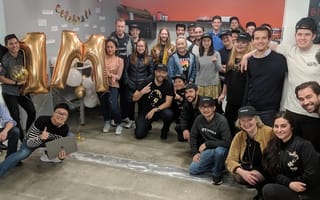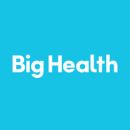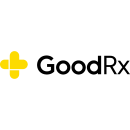San Francisco trolleys might have been engineered to traverse the city’s infamous hills up and down. But for these nine engineering teams, the only way is up.
After all, the long-established tech hub has produced industry giants like Salesforce, Airbnb, Uber, and DoorDash – just to name a few. So while the tech fields might be fertile in the land of the Golden Gate, companies often also have big expectations to exceed.
With the right engineering team behind a strong product and a like-minded support system, many have nevertheless been able to hit their stride as they gear up for an ambitious season of growth.
What’s their secret?
“Some may think of teamwork solely as collaboration and helping each other achieve shared goals,” Bryce Hemme, principal architect at Granular, said. “While that is definitely a major part of it, teamwork for us means the willingness to challenge each other and confront differences head on.”
Built In San Francisco sat down with Hemme and eight additional engineering professionals in the Bay Area to learn more about the tech stacks that help their projects thrive and why this fall has even bigger opportunities on the horizon.
Afresh is a system built for fresh inventory, forecasting, ordering, and grocery store operations to help eliminate food waste.
Their tech stack: “Afresh builds solutions that use AI to predict the right amount of fresh food a grocery retailer should order at the right time, and surface recommendations in an iPad app used by store teams,” Jin said. “I have my own Kubernetes cluster where I can make code changes and deploy new images or edit the data in my personal database without worrying about it affecting other developers or customers. This makes it easier for me to test features spanning multiple services. I can also make changes to the API server or celery messaging queue to see the performance impact of those changes in the Datadog APM traces.”
“Having an entire development setup available to me gives me a deeper, more holistic understanding of how different parts of our system work together.”
Growth on the horizon: “We’re planning on scaling up our customer base very quickly, very soon. The API works well with our current load, but we want to make sure we’re staying ahead of our growing customer base. Given that, I’m working on improving the performance of our largest GraphQL query. With this project, I get to dig into the nitty-gritty details of what’s actually going on when this query is executed. I’ve improved the execution of raw database queries, tuned database connection pooling parameters, and cached data that gets accessed multiple times.”
Lifting each other up: “We have a team tradition called Friday Wins, during which a handful of folks share a win they had from the week. I really enjoy this time because it’s a great way to learn more about the projects on other teams and understand the impact they have on the company. It’s also a fun way to get to know people better in terms of hobbies they’re interested in or big life events. And I love being able to end the week on a positive note.”
Zumper is a rental platform used to search for verified properties, reserve them on the spot and lease them online.
Their tech stack: “Some of my favorite tech tools include the latest versions of Xcode and Android Studio, along with the newer user interface toolkits SwiftUI and Jetpack Compose,” Shabo said. “These toolkit frameworks allow developers to easily create modern user interfaces such as buttons, toolbars, shapes, etc. with less code than older frameworks. In addition, SwiftUI and Jetpack Compose both have a similar code structure, which allows our apps to be more easily cross-compatible between both iOS and Android devices.”
Impactful work: “I’m just finished working on The Rent Report Widget for our iOS app. It displays a three-month rent trend in any specified location. The user can specify a certain number of bedrooms that they would like to see a trend for. This project allowed me to produce something that could be beneficial for both the renter and the property owner. I was able to work alongside a designer and utilize the iOS WidgetKit framework in order to bring the designs to reality. This project allowed me to become more comfortable with Swift and iOS development.”
Success through honest communication: “This organization embraces transparency, which helps people feel more comfortable with one another and allows them to build trust and respect. At Zumper, communication and teamwork are encouraged so that we can produce high-quality features for our app at an efficient pace.”
Payment platform Afterpay was created as an alternative to credit cards by allowing shoppers to break online retail payments into four equal installments.
Their tech stack: “We use a variety of technologies at Afterpay, mainly Java and Python,” Garg said. “Teams have recently been building new services using Kotlin and we’ve seen improvements in both developer productivity and code readability. Afterpay is migrating our infrastructure to Kubernetes. We are excited to dive deeper into that ecosystem including the introduction of a service mesh such as Envoy or Linkerd.”
Innovative products: “We just launched our single-use card that enables customers to shop at some of their favorite retailers such as CVS, Target and Macy’s via our app. The team enjoyed building a brand new integrated experience from within our app that required deep integration with our banking partners and card issuing platforms.”
Big challenges, big rewards: “Our team and culture are very unique in that we don’t shy away from any challenge that is presented to us. In just under three years, we went from handling no volume to billions of dollars a year in the U.S. market – and this is a testament to the ability for us to take on a tough challenge and build something at true scale. We accomplish this via strong teamwork and trust.”
Domino Data Lab is an Enterprise MLOps platform powering data science for 20% of the F100.
Their tech stack: “Our foundation for the Domino Data Science Platform is Kubernetes, which gives us portability between on-premise and cloud deployments (AWS, Azure, and GCP), as required by our diverse customer base,” Wampler said. “We write software for the platform in Scala, Go and Typescript, with lots of Python, R, Julia, and MATLAB for data science projects and Python for DevOps and MLOps. Surrounding all that is a commitment to mature, yet constantly improving software development processes and organizational culture.”
Always improving: “Building a sophisticated yet scalable and resilient platform for data scientists and MLOps means that we constantly iterate to improve how we work to refine the tools we use and to improve our codebase. We do this to meet our own productivity goals, as well as our customers’ expectations for evolving capabilities as their needs change.”
Drawing from diverse experiences: “The diversity of our skills and our backgrounds, both in life as well as previous work experiences, makes Domino a fun place to collaborate, to learn from each other and to push our company forward. Domino expects a lot from its team members – as any company should – but it provides the support, the work environment and the culture that make Domino a rewarding place to work.”
Personal Capital is a fintech company that combines technology tools with fiduciary advisory services, delivered virtually and directly to the consumer.
Their tech stack: “Our tech stack consists of Java Spring Boot applications and services deployed on Elastic Kubernetes Service on AWS,” Buchanan said. “We utilize many other AWS managed services, including Aurora, Redis, Redshift, Lambda, Kinesis, S3, SQS, SNS, and more! Our favorite monitoring and logging tools include Splunk, Datadog, and AppDynamics. Slack and Google Meet keep us up to date and engaged with our colleagues.”
Planning for every outcome: “We are currently optimizing our CI/CD pipeline to quickly deploy changes with high confidence and quality. We’re focusing our efforts on tuning our automation and unit tests to run efficiently and reducing our build times. We continue to iterate to proactively find any potential bottlenecks in our ability to scale via load testing. Our teams find great delight in trimming down build times, reducing artifact sizes, and optimizing application startup times.”
Like creator, like client: “At Personal Capital, we all use the app that we work on each day. Being users ourselves allows us to keep it personal and be in touch with our end product. We enjoy chatting with each other about personal finance topics, including investing, buying or refinancing a house, and optimizing our financial lives. That knowledge sharing spills over into our regular work as well, where we help each other work more efficiently and effectively, sharing tips and learnings from our work.”
Big Health offers behavior programs through its proprietary digital health software to help users address and improve mental health issues.
Their tech stack: “At Big Health, we develop our backend using a modern serverless stack with Python as our language of choice,” Braganza said. “By leveraging managed AWS services, we keep our operational overhead small. We’ve also adopted a microservice architecture and use the Serverless framework to deploy on AWS Lambda. Our data is persisted on Postgres instances managed by RDS, and of course, we use S3 to store files. On the frontend, we use React and ReactNative, and we’re increasingly using TypeScript for development. We use Jest for frontend unit testing, and automate our end-to-end tests using Selenium.”
Building possibilities: “Just over two years ago, I joined Big Health as an individual contributor, primarily working on our backend. As of last month, I manage the enrollment engineering pod. The enrollment pod is responsible for building the technical infrastructure to deliver our products to those who need them the most. Through digital therapeutics for sleep and mental health, we are able to help millions back to good mental health by providing clinically validated solutions at scale.”
“Integrating with our partners in the healthcare industry offers us practical exposure to a wide array of technologies – from the cutting edge to ANSI standards that were first defined decades ago.”
Curating collaboration and success: “We crafted our ceremonies and working agreements with thought, care and collaboration to create a shared understanding of how we do our best work so that we can establish a culture of trust. For example, our practice of egoless incident retrospectives kicks off with a participant reading the Retrospective Prime Directive aloud: ‘Regardless of what we discover, we understand and truly believe that everyone did the best job they could, given what they knew at the time, their skills and abilities, the resources available, and the situation at hand.’”
Granular provides software solutions for the growers behind the food industry, allowing them to better understand their operations from the ground up.
Their tech stack: “We follow a serverless-first, event-driven approach,” Hemme said. “To achieve this, we rely heavily on AWS services such as Lambda, Step Functions, Kinesis and DynamoDB.
“From a client perspective, we use React on the web, Kotlin Multiplatform for shared mobile code, and Kotlin and Swift for their respective mobile platforms when necessary. Our backend language of choice is Python with a number of datastores spanning PostrgreSQL, DynamoDB, and Elasticsearch. Our preference is to limit choices but ensure we use the right tool for the job.”
Impacting the industry: “In 2021, our strategy, along with the strategy of our parent company, Corteva Agriscience™, has evolved to focus on leveraging the platform for additional use cases across the entire Corteva business. This provides Granular an increased opportunity to impact the agriculture industry as a whole while delivering on our mission. This opportunity is incredibly exciting but also presents several challenges. How do we support business use cases in all corners of the globe? How do we scale existing solutions to meet the greater demands? How do we migrate existing products to the platform – all while continuing to evolve our existing products and platform?”
“Fortunately, these are challenges that our team is uniquely positioned to tackle.”
Driven by teamwork: “At Granular, simplicity, optimism and teamwork have been the bedrock of our culture from the beginning. In the engineering org, our brand of teamwork is clearly a differentiator. Some may think of teamwork solely as collaboration and helping each other achieve shared goals. While that is definitely a major part of it, teamwork for us means the willingness to challenge each other and confront differences head on, accepting diversity of thought and experience, and never forgetting that we only win together.”
GoodRX helps patients lower their prescription costs and take more control over receiving the medication they need.
Their tech stack: “We use Python and Go for our backend services which typically run in Kubernetes in AWS,” Griffis said. “We have a middle layer we use with GraphQL powered by AppSync which feeds our frontends. It’s a pretty neat system that we are using for the frontends; it’s basically a bunch of webviews that get data from GraphQL and are reusable across web and native apps. We call it Build Once Deliver Everywhere, or BODE.”
Growing through challenges: “The most challenging project I’m working on right now is bringing our Home Delivery product to the web – it is currently native apps only. There are a number of new and moving parts like building in BODE and collaborating with teams we previously hadn’t. I love learning new technologies and ways of working! This project is definitely fulfilling in that sense.”
Camaraderie near or far: “One of the teams I manage has a remote happy hour where we play games online. It’s a great way to get to know people casually since we’re mostly remote nowadays.”
Hippo Insurance is a home insurance provider that also offers its members smart home technology to help thwart events like fire, water damage and theft.
Their tech stack: “A full-stack JS company from the outset, we’ve embraced TypeScript for much of the technology we build,” Strozek said. “On the frontend, we use React. We are proud of our infrastructure – full CI/CD pipeline with CircleCI and tools such as Loggly, Grafana and Prometheus for identifying issues. Insurance is a high-stakes business so we value and invest in automated test coverage and other initiatives that ensure the high quality of what we deliver.”
Value in diverse skills: “I am lucky to work with multiple teams that build our products. We have a data-driven sales channel, where the presentation of questions and information is managed by real-time data instead of a fixed flow. We’re leveraging machine learning for real-time risk evaluation. We’re in the process of launching a mobile app that allows our customers to manage their policies. We’ve built a system that, for an insurance program that we add to our offering, automatically ingests a human-readable spec that our business stakeholders and product managers come up with. We offer multiple APIs for different types of partners that we work with.”
“We love the opportunity to build out a modern home insurance stack, which lets us offer innovative solutions in the industry infamous for its legacy technology.”
Authenticity is key: “At Hippo, I’ve been struck by how authentic everyone is. Even during the pandemic, with everyone on Zoom, you get a sense that you know who your teammates really are. We focus on adding value, individually and via collaboration. We keep overhead to the minimum and exhibit a notable bias for action. We are a relatively small team that gets a lot done, so every engineer gets to viscerally feel their impact on the business.”


























